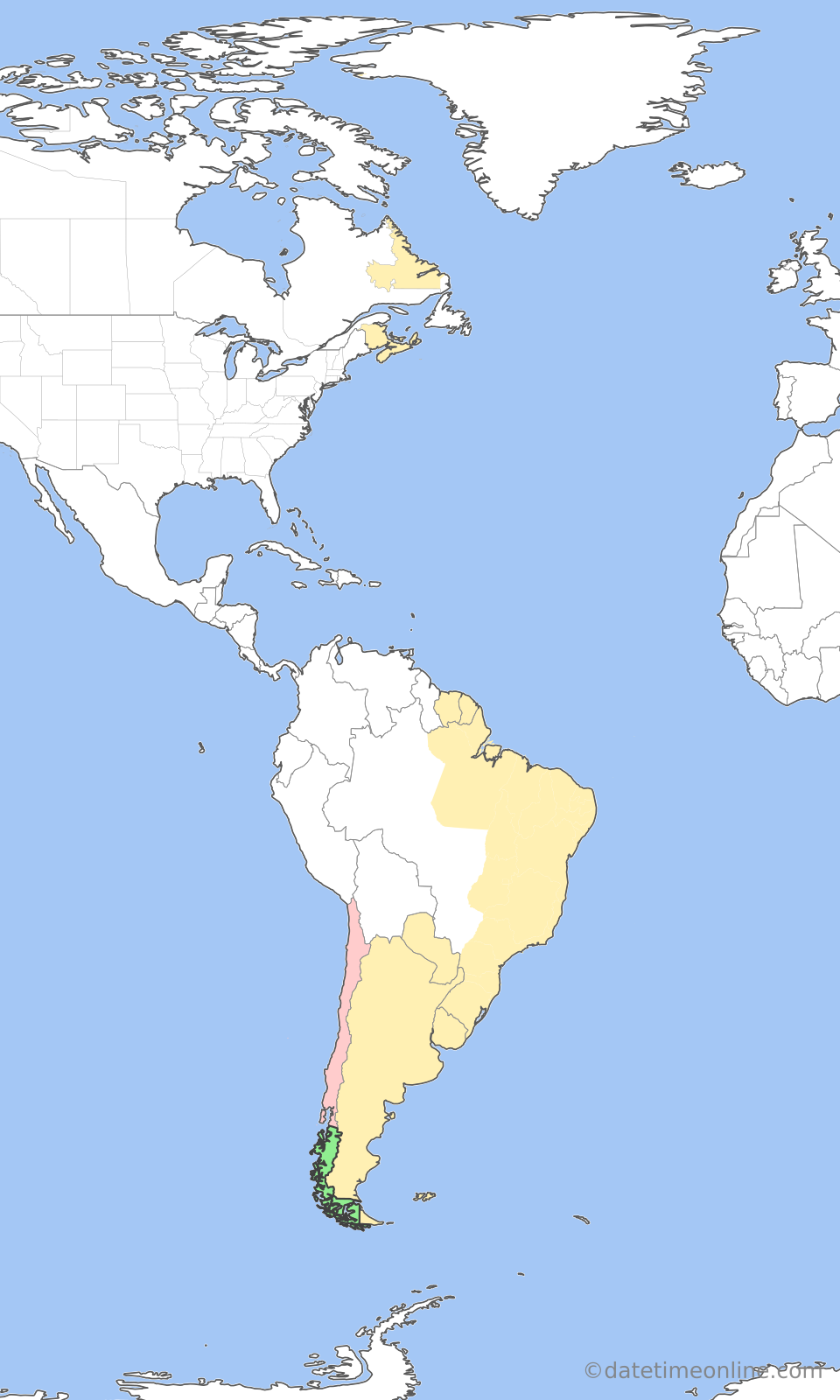CLST time now |
|
02:16:21 Sun, 27 Jul 2025
|
| UTC Offset: UTC -3 |
Chile Summer Time (CLST) operates at UTC−3 hours and is observed across most of mainland Chile during the summer months, generally from September to April. Sometimes referred to as "Chile Daylight Time," CLST shifts clocks one hour forward from Chile Standard Time (CLT, UTC−4) to extend evening daylight. Additionally, southern Chilean regions, as well as Palmer Station in Antarctica, use CLST year-round.
Importance and Global Use of CLST
CLST is vital for supporting social, economic, and cultural activities in Chile, helping people make better use of extended daylight hours during the summer season. This adjustment improves energy efficiency and supports tourism, agriculture, transportation, and daily life across urban and rural areas.
On a global scale, CLST aids Chile in aligning its summer schedules with major international partners, making trade, aviation, and communication more seamless with countries in Europe and North America. Its predictable daylight-saving schedule also supports scientific research bases in Antarctica, like Palmer Station, ensuring reliable coordination year-round.
Where and When CLST is used worldwide

Follows CLST during parts of the year.
Operating on the same time (UTC -3).
South America
South American countries using CLST during summer and CLT during winter:
- Chile mainland – except Aysén Region
Chilean regions using CLST all year:
- Aysén Region
- Magallanes and the Chilean Antarctic Region
Antarctica
Locations in Antarctica using CLST all year:
- Palmer Station
Other Time Zones in UTC -3
Other time zones share the same offset as Chile Summer Time (CLST), but are known by different names. While their clocks align, they may represent different regions or countries based on local time zone definitions.